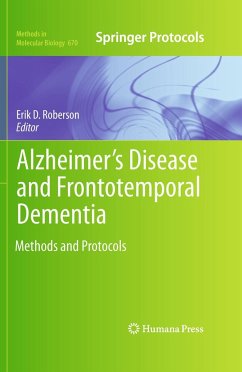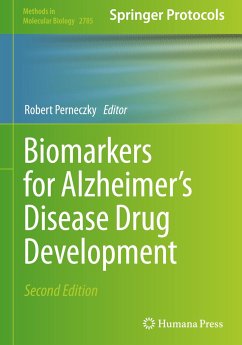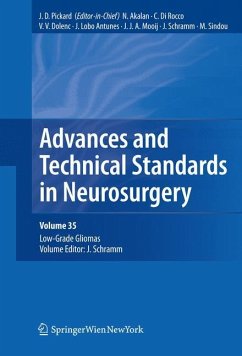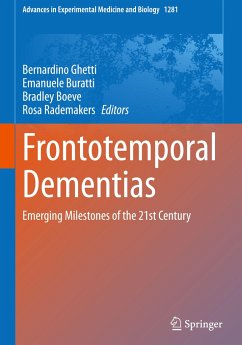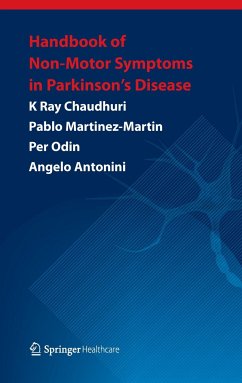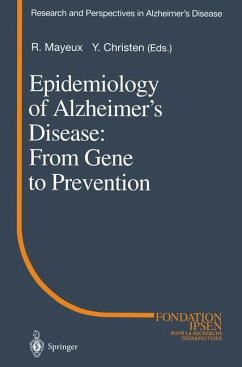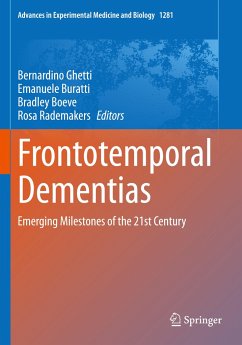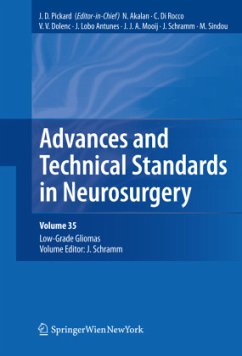
Alzheimer's Disease and Frontotemporal Dementia
Methods and Protocols
Herausgegeben: Roberson, Erik D.
Versandkostenfrei!
Versandfertig in 6-10 Tagen
91,99 €
inkl. MwSt.

PAYBACK Punkte
46 °P sammeln!
Alzheimer's disease and frontotemporal dementia, two of the most prevalent neurodegenerative diseases, are dreaded disorders that attack the neural networks underlying memory and personality, systems that make us who we are. Major breakthroughs in recent years have spurred new research approaches to these conditions. In Alzheimer's Disease and Frontotemporal Dementia: Methods and Protocols, expert investigators bring together the many divergent areas of expertise used to study these diseases, including behavior, electrophysiology, confocal microscopy, and hardcore biochemistry. Beginning with ...
Alzheimer's disease and frontotemporal dementia, two of the most prevalent neurodegenerative diseases, are dreaded disorders that attack the neural networks underlying memory and personality, systems that make us who we are. Major breakthroughs in recent years have spurred new research approaches to these conditions. In Alzheimer's Disease and Frontotemporal Dementia: Methods and Protocols, expert investigators bring together the many divergent areas of expertise used to study these diseases, including behavior, electrophysiology, confocal microscopy, and hardcore biochemistry. Beginning with an overview of the two diseases and contemporary research on them, the book continues with specialized protocols for working with amyloid-beta peptide, tau, and apolipoprotein E as well as experimental systems for studying AD and FTD, including cell and animal models, and outcome measures that can be used to assess neuronal function in these systems. Written in the highly successful Methods in Molecular Biology(TM) series format, chapters include brief introductions to their respective topics, lists of the necessary materials and reagents, step-by-step, readily reproducible laboratory protocols, and notes on troubleshooting and avoiding known pitfalls.Authoritative and easy to use, Alzheimer's Disease and Frontotemporal Dementia: Methods and Protocols serves as an ideal guide for all scientists pursuing the cause and cure of these widespread and nightmarishly debilitating disorders.





